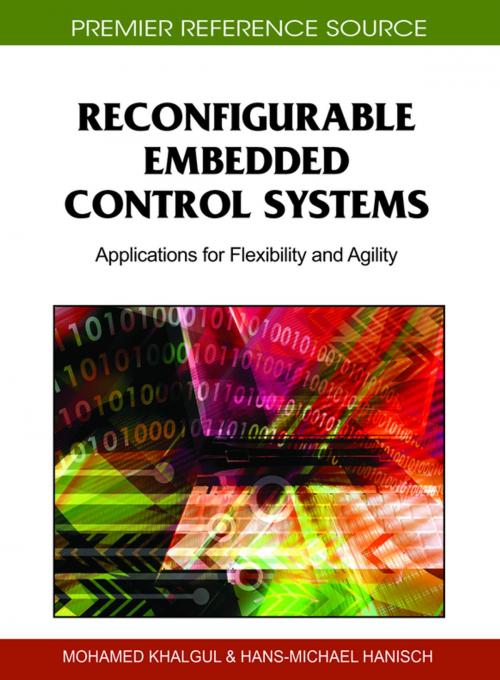Reconfigurable Embedded Control Systems
Applications for Flexibility and Agility
Nonfiction, Computers, Networking & Communications, Hardware, Advanced Computing, Engineering, Computer Engineering, General Computing| Author: | ISBN: | 9781466607514 | |
| Publisher: | IGI Global | Publication: | November 30, 2010 |
| Imprint: | Information Science Reference | Language: | English |
| Author: | |
| ISBN: | 9781466607514 |
| Publisher: | IGI Global |
| Publication: | November 30, 2010 |
| Imprint: | Information Science Reference |
| Language: | English |
New generations of embedded control systems address criteria such as flexibility and agility. To reduce their cost, these systems have to be changed and adapted to their environment without any disturbances. Reconfigurable Embedded Control Systems: Applications for Flexibility and Agility addresses the development of reconfigurable embedded control systems and describes various problems in this important research area, which include static and dynamic (manual or automatic) reconfigurations, multi-agent architectures, modeling and verification, component-based approaches, architecture description languages, distributed reconfigurable architectures, real-time and low power scheduling, execution models, and the implementation of such systems. The chapters contained within this reference work propose interesting and useful solutions that can be applied in future industry.
New generations of embedded control systems address criteria such as flexibility and agility. To reduce their cost, these systems have to be changed and adapted to their environment without any disturbances. Reconfigurable Embedded Control Systems: Applications for Flexibility and Agility addresses the development of reconfigurable embedded control systems and describes various problems in this important research area, which include static and dynamic (manual or automatic) reconfigurations, multi-agent architectures, modeling and verification, component-based approaches, architecture description languages, distributed reconfigurable architectures, real-time and low power scheduling, execution models, and the implementation of such systems. The chapters contained within this reference work propose interesting and useful solutions that can be applied in future industry.















